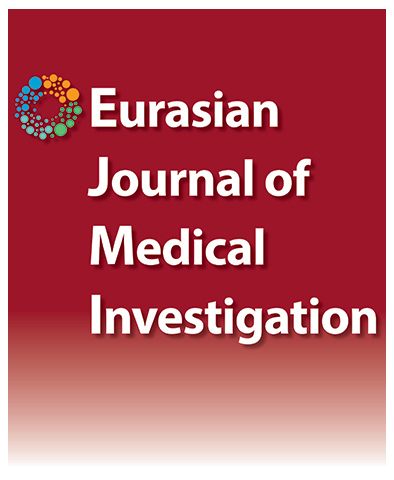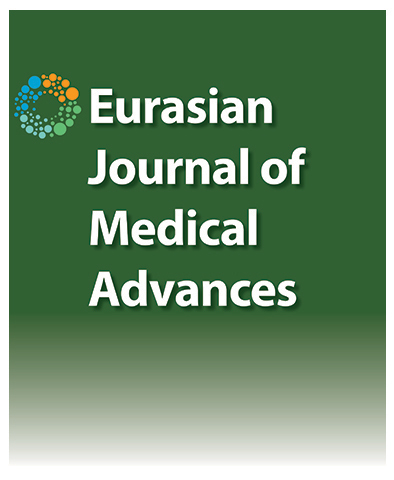The Effect of Positive Inotropic Therapy on Serum Adiponectin Level in Patients with Acute Decompensated Heart Failure
Mustafa Kaplangoray1, Nizamettin Toprak21Department of Cardiology, Health Sciences University Şanlıurfa Mehmet Akif İnan Training and Research Hospital, Şanlıurfa, Türkiye2Department of Cardiology, Dicle University Diyarbakır, Türkiye
Objectives: Our aim in this study is to investigate the effect of levosimendan and dobutamine treatment on serum adiponectin levels in patients with acute decompensated heart failure (ADHF) who need positive inotropic therapy.
Methods: This study included 44 patients with ADHF who had a functional capacity (FC) of 4 according to NYHA, and had a positive inotropic treatment indication with a left ventricular ejection fraction (LVEF) of less than 35% on echocardiography. LVEF, serum adiponectin level, BNP level, pulmonary artery systolic pressure (PAP) and FC measurment of the patients were taken before the treatment and on the third day of the treatment. The delta (Δ) value, which is the difference between the basal and post-treatment values of these parameters, was calculated.
Results: A decrease in serum adiponectin after treatment was observed in the levosimandan group (p=0.029). In addition, when the rates of change in LVEF (p=0.001), PAP (p=0.005), FC (p=0.041) between both treatment arms were compared, the improvement resulted in favor of levosimendan for these parameters as well.
Conclusion: Adiponectin, which increases proportionally with the severity of HF and is associated with mortality, decreases more with levosimendan treatment than dobutamine.
Manuscript Language: English





